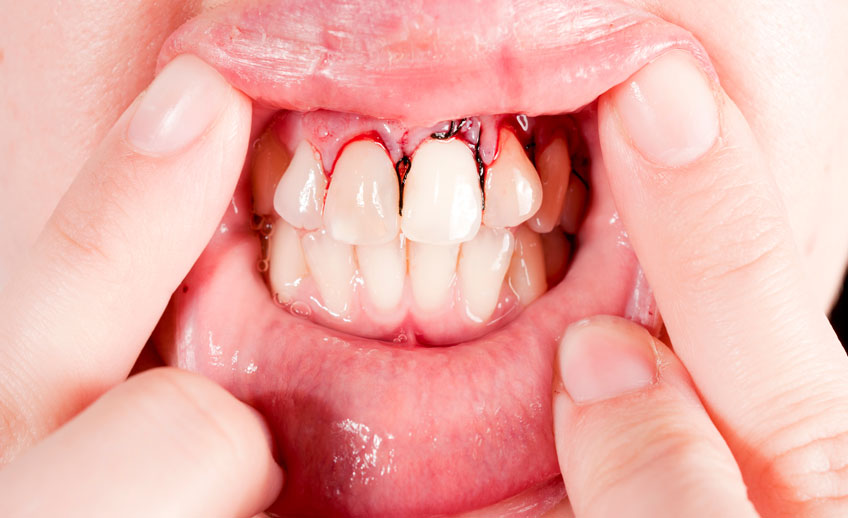Gum infections and the associated problems involving the jaw bone are one of the most common Dental Disorders in India affecting more than 10 million people.
Lot of factors affect the gingival health of an individual as detailed below:
- Age: Gums are more prone to infection as age advances (particularly in cases of neglect in younger years).
- Sex: According to a Research conducted, women are more prone to suffer from Gingivitis (inflammation of Gums) compared to men.
- Medication: Many medicines particularly epilepsy related (E.g. phenytoin) cause gums enlargement.
- Medical Disorders: People suffering from diabetes, dry mouth (Xerostomia) etc. might be prone to Gingivitis.
Your Gum form the cornerstone of the dental health and also determine the success and failure of future dental prosthesis such as dental bridges and dentures.
Gingivitis and Periodontitis are two key words here. While Gingivitis is the initial stage whereby the gums become red and swollen, Periodontitis is the advanced stage that involves inflammation of the entire periodontium which is characterized by periodontal ligament widening, pocket formation (i.e. gaps between the gum and tooth upto 5 mm) and bone resorption ultimately leading to mobility in teeth.
In a few cases, the transition from simple gingivitis to the severe periodontitis can be rather rapid and aggressive.
In a majority of cases, simple Oral Prophylaxis, Sub Gingival Scaling, Curettage and Root Planning Procedures are used rather successfully, but in a few cases surgical intervention is needed.
The most common gum surgery is the Flap Surgery – In this the dentist cuts the gums from 3 sides keeping the fourth side intact to maintain the blood supply, this results in an appearance of a flap of an envelope. Once the flap is created, it is raised and retracted giving a clear access to the underlying periodontium. The visible plaque, calculus and debris are then aggressively cleaned and the tooth surfaces are made plane, if needed grafts are used and the flap is sutured back with stitches (resorbable sutures).
This entire procedure is done under local anaesthesia and ideally completed under an hour. Patient is put under an antibiotic coverage and given mild pain killers.
Please note that Gum Surgery is not the end of treatment and patients are always advised to keep following up with the dentist every 3-6 months.

